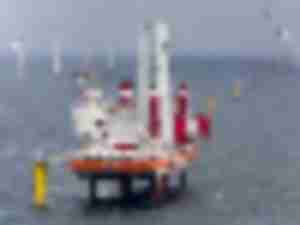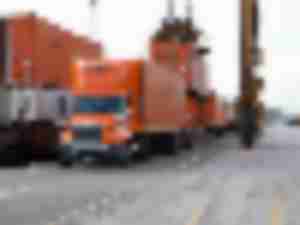Diesel settles down…for now
Prices moderate as panic buying eases
Port of Muskogee recovers from 2019 floods supported by U.S. infrastructure funding
Both U.S. political parties need to support more infrastructure spending, including for the inland waterways and recognize that barge transportation can provide major cost savings compared to truck and rail, according to Kimbra Scott, port director, Port of Muskogee, Oklahoma.
An Interview with John McCown
John McCown, author of the widely cited McCown Report, is an industry veteran who sees a fundamental shift away from West Coast ports to East Coast and Gulf coast ports where projections indicate that 75% of U.S. trade should be shipped compared to 25% for the West Coast. McCown is the former chairman and CEO of Trailer Bridge, the founder of Blue Alpha Capital where he is working on financing an offshore wind turbine installation vessel. McCown is also Non-Resident Senior Fellow at the Center for Maritime Strategy with the Navy League of the United States where his focus is on the intersection of merchant shipping and maritime commerce with national security.
Port of Long Beach’s Cordero emphasizes zero emissions
Mario Cordero, executive director of Port of Long Beach emphasized the Port’s success in upgrading its terminals toward zero emissions: “Our terminals have accomplished so much and when it comes to our remarkable zero-emission demonstration projects … since our determination in November 2017 to achieve zero emissions.”
The evolution of container chassis provisioning in the US
Significant trends shaping access to resilient, efficient, and environmentally sound chassis provisioning models
U.S. says nearly 50,000 new jobs could be created by offshore wind by 2030
The National Renewable Energy Laboratory (NREL) released a report on January 23rd stating that the U.S. goal of generating 30 Gigawatts (GW) of offshore wind power by 2030 will create nearly 50,000 new American jobs, provided that major upgrades in ports and shipyards are achieved.
‘Don’t bet against LA’ says Port of LA’s Seroka
In spite of the loss of cargo to East and Gulf coast ports and the continued stalemate in dockworker contract negotiations between the International Longshore and Warehouse Union (ILWU) and the Pacific Maritime Association (PMA), Port of Los Angeles Executive Director Gene Seroka is convinced his port will bounce back stating: “Don’t bet against LA.”
Jensen says container trade recovery could be delayed until 2024
The hopeful projections for recovery in cargo volumes in 2023 may be overshadowed by the more pessimistic projection of delayed recovery which may only manifest itself in 2024, according to Lars Jensen, Principal at Vespucci Maritime based in Copenhagen, Denmark.
Biden Administration Decarbonization Blueprint targets transportation
The document is a collaboration of the U.S. Departments of Energy, Transportation, Housing and Urban Development, and the Environmental Protection Agency (EPA).
Accelerating into 2023
Reflecting on 2022, after two and half years of disruption, the transportation and supply chain sector is at a moment to differentiate how we do business and leverage technology to accelerate the industry. Looking ahead to 2023, the opportunity lies before us to deepen strategic relationships with customers and to deliver value.
© Copyright 1999–2025 American Journal of Transportation. All Rights Reserved










